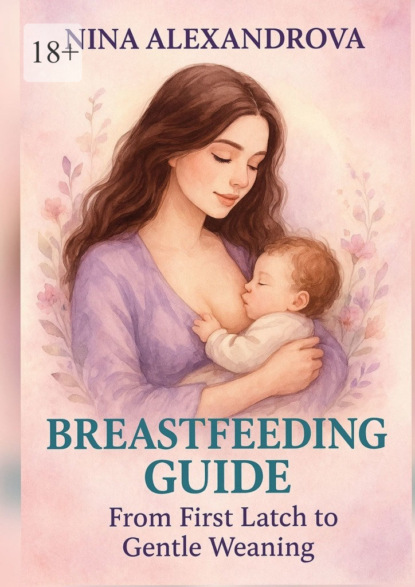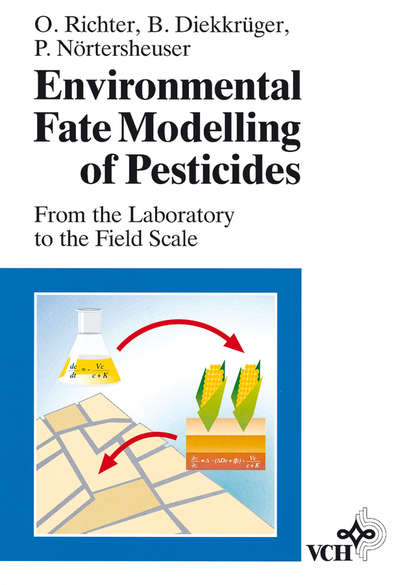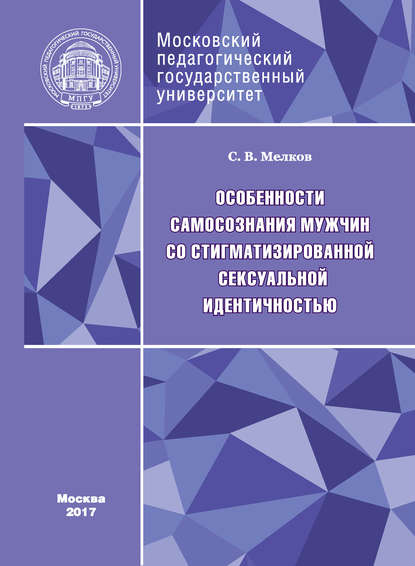Breastfeeding Guide: From First Latch to Gentle Weaning

- -
- 100%
- +

© Nina Alexandrova, 2025
ISBN 978-5-0068-1040-2
Создано в интеллектуальной издательской системе Ridero
Preface
The purpose of this book is to give mothers knowledge,
peace, and confidence in the process of breastfeeding.
May it be filled with tenderness, love, and harmony!
With love,
Nina A.
Introduction
Dear mothers, warm greetings to you!
To be honest, I truly wish humanity would become happier, more harmonious, and calmer.
And these wonderful states of the soul are formed in the earliest stages of childhood – sometimes even before birth.
That’s why in matters of motherhood and newborn care, there are no small details, no insignificant moments to neglect: every instant of a young life lays the foundation for states of being that will inevitably shape a child’s perception of the world in the future. And if a mother is calm and harmonious, and her interactions with her baby are filled with love, free from struggle and tension – that already becomes the backbone of her child’s future happy life.
I want you not to fear motherhood, not to be frightened or stressed by your baby’s crying. I want you to feel the blessed joy of nursing your child – and to be free from worries in these precious moments.
That is exactly why I decided to create this guide for mothers on one of the most vital and sensitive topics – natural and healthy infant feeding.
When I asked women about breastfeeding, 75% admitted they had faced difficulties with it. That is an enormous number!
And I am absolutely convinced that most of these difficulties can be prevented through knowledge and preparation.
I sincerely hope I can make a positive impact on this statistic by giving you what I believe is the most valuable information about breastfeeding.
In this guide, we will explore the most important and practical questions concerning lactation.
So, let’s begin this journey! May this little book bring you clarity and peace of mind.
My Journey
Every now and then, I get accused on my blog of «promoting» breastfeeding while ignoring a woman’s right to decide what to do with her body – because, indeed, every woman has the right to breastfeed or not.
And yes, that’s true in principle. But I think that beyond my medical knowledge of how important breast milk is for infants, there is also a personal, almost subconscious wound I carry.
I work a lot on my mindset – maybe even too much. And I know that at a subconscious level, every event of our lives leaves an imprint.
Perinatal psychologists even claim that our subconscious stores experiences from as early as the 24th week of gestation – if not earlier. This has been confirmed through studies: tens of thousands of people of different ages were placed under hypnosis and recalled their experiences of coming into the world. They remembered such details that only their mothers could have known.
My own mother nursed me for just one month before stress caused her milk supply to vanish. I grew up on formula. I knew this from childhood and always accepted it calmly, as a fact.
Formula feeding didn’t harm me intellectually or physically, as far as I can tell – I have no allergies, no autoimmune or chronic diseases.
But I always had a kind of fixation: to nurse my own children for at least two years. And I did just that with my two eldest.
My son weaned at 2 years and 2 months, during my second pregnancy, when my milk supply had nearly dried up. Nursing him was true heroism – I was studying full time when he was born.
By some miracle, we found an apartment right next to the National Center for Maternal and Child Health – just a five-minute walk. When he was two weeks old, I went back to classes. I warned my supervisors that I had a newborn.
Every evening I expressed milk to leave in the fridge. Every morning I woke early to feed him until he was full.
By midday my breasts were so engorged that I held back tears from the let-down reflex. I knew the exact moment my baby woke up – because my breasts filled and hardened right then.
Sometimes I had to slip away and express just a little. Sometimes I couldn’t even zip my jacket because my breasts were too swollen.
Yes – that’s the only place I ever got stretch marks.
At lunch I literally ran home to nurse him, then expressed more milk for the evening.
That’s how I managed to maintain breastfeeding even while studying intensively, attending lectures, clinical rotations, surgeries, and conferences where leaving was impossible.
We did buy formula as a backup, but my mother only had to use it once. After that, the can was thrown away.
That experience proves the saying: «Where there’s a will, there are a thousand ways.»
I nursed my eldest daughter even longer – until 2 years and 8 months.
My husband scolded me, saying she was far too old. His parents gave me looks whenever I went off to nurse her. But she was independent, talking clearly, and even demanded «milk» in plain speech.
Weaning her took several months – and I was surprised the day I realized she had gone a full 24 hours without nursing. It all happened softly and harmoniously.
Now I’m nursing my third child, who is nearly two – and I have no thoughts of stopping yet.
I never fully understood why it was so important for me to nurse for as long as my children wanted – even at the expense of my own body (engorgement, stretch marks). Until recently, during a meditation, I felt myself as an infant, desperately craving my mother’s breast, only to receive instead a hard rubber pacifier with formula flowing out.
I can’t even describe the wave of emotions I felt in that moment. I wanted to hug that baby I once was, to nurse, cradle, and comfort her.
I have a wonderful mother and a beautiful relationship with her, but I don’t know how much strength she had left for me – I was her third child. Perhaps I lacked something very essential, because I still feel a raw ache whenever I see women consciously refuse breastfeeding while having every possibility to continue.
And that’s why I advocate lactation as the best choice for both child and mother. Because long-term breastfeeding also helps prevent breast cancer and osteoporosis after menopause.
That’s why I’ve counseled women on breastfeeding almost as much as I’ve counseled them on gynecology. Every preserved breastfeeding journey feels like my personal victory and joy – just like every cherished pregnancy and every smooth birth I’ve witnessed in my patients.
That’s why I studied lactation as deeply as professional consultants do.
That’s why I once wrote this guide – and why I am now editing and expanding it, to make it fuller, richer, more meaningful, and more useful. To make the process of breastfeeding even easier and more comfortable for you.
Why Breastfeeding Matters
There is nothing better or more beneficial for a young mother and her newborn than natural breastfeeding.
It is a healthy, natural process that creates a special psychological bond between the closest of people. A newborn, when nursing, once again feels like a continuation of his mother. In this state, he feels safe, peaceful, and secure. These moments set the tone for his emotional life for years to come.
You’ve surely noticed how even the bitterest cries stop within seconds when a baby latches onto the breast. It’s not just that their mouth is occupied – it’s the flood of hormones released in that instant, creating a state of happiness strong enough to silence pain and sorrow.
Breastfeeding also has profound benefits for the mother. In the first days postpartum, nipple stimulation helps the uterus contract, speeding recovery and cleansing the womb.
And in moments of nursing, when a mother holds, smells, and gazes at her baby, she too experiences an overwhelming surge of love, harmony, peace, and happiness. As if the planet has paused – and the whole world can wait until this sacred act is over.
These moments deepen the mother-child bond and are essential for healthy emotional development. Research increasingly shows that the more unconditional love a child receives early in life, the more whole, independent, and happy a person they become.
Nature designed everything perfectly: from the convenience (milk always ready), to physiology (transfer of microbiota, uterine recovery), to emotions (mutual love in feeding), to health (all nutrients and antibodies required for growth and immunity).
Any artificial substitute instantly complicates things – bottles, formulas, sterilization, measuring, disputes about water supplementation. And no formula can replicate the living, dynamic composition of breast milk.
Formula also takes time: a hungry, crying baby must wait while it’s prepared. Those minutes may seem small to us, but to an infant, they can trigger a primal fear of death from hunger. Such fear, repeated again and again, can leave subconscious imprints that manifest as anxiety throughout life.
That’s why I beg every mother to protect her lactation, nurse as long as possible, and avoid supplementation unless absolutely necessary for medical reasons. Formula should be used only on a pediatrician’s advice – never because of myths like «weak milk» or «not enough milk.»
Key Facts About Breastfeeding
– Breastfeeding fully meets all of a baby’s basic needs.
– Breast milk contains the perfect balance of proteins, fats, carbohydrates, vitamins, over 15 hormones, beneficial bacteria, and growth factors.
– It is rich in antibodies that protect the baby from infections.
– Its composition changes to match the baby’s needs – even within a single day, or during tandem nursing.
– Breastfeeding helps the mother recover faster after birth.
– It reduces the risk of postpartum depression and strengthens maternal instincts.
– Size or shape of the breast does not affect milk supply or duration of breastfeeding.
– Flat or inverted nipples are not an obstacle to successful nursing.
– Nearly every woman (except those with true hypogalactia) is capable of producing as much milk as her baby needs, and can continue breastfeeding for as long as she chooses.
– Breastfeeding costs nothing and saves a family the equivalent of 36,000—120,000 rubles (around 270,000 tenge) per year.
– Long-term breastfeeding (beyond a year) reduces a woman’s risk of osteoporosis and fractures after menopause.
– Breastfeeding significantly lowers the risk of breast cancer.
Don’t Bring a Breast Pump to the Maternity Ward
When I gave birth to my daughter, I shared a room with a young mother and her firstborn. Her baby endlessly sucked on a pacifier – poor thing – while she spent hours furiously pumping, growing more anxious with every attempt, because the milk wasn’t coming and her breasts were sore from the machine.
Doctors and nurses kept gently advising her to take away the pacifier, but she nervously brushed them off: «Don’t interfere! I know best!»
It looked absurd to me, even tragic. Like giving your husband a blow-up doll while you yourself rely only on a vibrator – replacing the most natural, healthy process of latching a newborn with the most artificial substitute.
So here is my advice: leave the breast pump at home when you go to the maternity hospital! In fact, forget about it entirely – unless in rare, critical situations: when the baby is full but the breasts are painfully engorged, or when you must be away for several hours. (I’ll cover these cases in a separate chapter.)
«Baby Refuses the Breast»?
People often ask me about situations when a baby «refuses the breast.» Physiologically, this is impossible if the newborn is healthy, properly developed, and comfortable. If it really happens, there is always a reason:
– Mom might smell too strongly of perfume or shower gel.
– The baby may be incorrectly positioned.
– Nursing might feel physically uncomfortable for the baby.
– Or – worst of all – the baby was already given formula in the wrong kind of bottle and now finds breastfeeding «too much effort.» (Do everything you can to avoid this last mistake.)
«Not Enough Milk»?
I also don’t really believe in the widespread idea that a newborn «doesn’t get enough milk and must be supplemented with formula.» Most often, it’s simply maternal anxiety – or the nervous pressure of grandmothers.
Mother and child are like Yin and Yang, two perfectly matched pieces of a puzzle. They just need a few days to adjust, and then the amount of milk produced will naturally match the baby’s needs – provided mom is not under stress, malnourished, or overwhelmed.
The First Days: Colostrum
During the first 3—4 days, there cannot physiologically be a large amount of milk. The body has just finished pregnancy, and the hormonal system needs time to shift gears into lactation.
In this short window, the baby receives colostrum – the thick, golden first milk. Just a few drops, but it is the most concentrated, nutrient-rich, immune-boosting substance your baby could ever receive. It’s perfectly sufficient. In colostrum lies your baby’s immunity, strength, and growth.
Gradually, colostrum transitions to mature milk. At first, the supply may overshoot – more than your baby needs – but soon it balances out.
For this to happen smoothly, one golden rule matters in the first 48 hours: put the baby to the breast as often as possible – every 1—1.5 hours, even if the baby is asleep.
If you don’t, the baby may sleep for many hours, then wake up desperately hungry – yet your milk supply hasn’t been stimulated, and colostrum volume remains unchanged. This is the moment when supplementation often begins, setting off a slippery slope toward mixed or full formula feeding.
To prevent this, wake the baby during the first two days. After your supply is established, you can switch to feeding on demand.
My Own Mistake
I myself made this mistake with my youngest daughter. She was born in the car, I had anesthesia afterwards, and the next morning at 5 a.m., instead of resting, I was hand-washing baby clothes. By the following day, I was exhausted. My daughter slept and slept, and I didn’t wake her.
That evening she woke starving. I spent the entire night desperately offering both breasts, but she still cried. The stress was overwhelming. And I finally understood why so many women in maternity wards give in to formula so quickly.
That’s why I call the «every 1—1.5 hours» rule in the first two days golden. It guarantees your milk will come in by day three.
The Physiology Behind It
Frequent nipple stimulation sends a direct message to the brain:
«We have delivered! There is a baby! The baby needs milk!»
The brain responds: «Understood. Producing prolactin now.»
And prolactin – the miracle hormone – fills the breasts with milk.
If milk supply still seems low, focus on nighttime feedings. Prolactin peaks between 3 a.m. and 8 a.m., which is why lactation consultants often recommend at least two feeds during those hours if supply is struggling.
WHO & UNICEF’s Principles of Successful Breastfeeding
– Early initiation within the first hour after birth.
– No supplementation before the first latch.
– Rooming-in: mother and baby together 24/7.
– Proper latch for effective suckling and comfort.
– Feeding on demand.
– Baby decides when to stop feeding.
– Co-sleeping if parents choose – it often improves everyone’s rest.
– Night feeds are essential for good supply.
– Exclusively breastfed babies do not need water; breast milk is 87—90% water.
– Breasts do not need frequent washing; daily showering is enough.
– Weekly weighing is sufficient; daily weighing stresses mothers unnecessarily.
– No routine pumping; milk supply matches demand.
– Exclusive breastfeeding for 6 months; continued breastfeeding to 2 years or beyond.
– Avoid bottles and pacifiers; if supplementation is necessary, use a cup, spoon, or syringe.
– In the first two months, mothers should stay close to their babies and rest often.
Colostrum and Milk: Nature’s Perfect Design
Your baby spent 40 weeks in a sterile womb. Suddenly, the outside world floods them with microbes, viruses, and allergens. Should you sterilize everything endlessly? No – nature already gave the perfect protection: colostrum and milk.
Colostrum is liquid gold. It protects against infections, helps clear bilirubin (reducing newborn jaundice), and is packed with immunoglobulins. Even premature babies who receive tiny amounts of colostrum through a tube thrive better than those on formula.
A full-term baby nourished on colostrum has stronger immunity than even the healthiest adult.
In ancient times, there were no sterilizers or antiseptics. That’s why nature gave newborns this extraordinary shield: breast milk.
Formula vs. Breast Milk
Formula contains:
– Water
– Proteins
– Carbohydrates
– Fats (including brain-supporting fatty acids)
– Vitamins
– Minerals
Breast milk contains all of the above, plus:
– Bifidus factor (develops healthy gut flora)
– Oligosaccharides (support digestion)
– Hormones and enzymes
– Absorption factors
– Immunoglobulins
– Viral fragments (to «train» immunity)
– Antibodies
– Leukocytes
– Growth factors
Formula is scientifically advanced, but it cannot contain living immune cells, hormones, or antibodies. Therefore, it can never equal breast milk.
That said, I am not an enemy of formula. It is an incredible invention that saves lives. My grandparents’ generation saw newborns die of hunger. In such a world, formula is a true blessing.
But I encourage you: even if breastfeeding is difficult, even if you must supplement – give your baby as much of your milk as possible. Two months is better than none. Ten percent breast milk is better than zero.
The Power of a Mother’s Determination
One mother I counseled had a baby born with a cleft palate. He physically could not suck. Doctors told her she’d only be able to give breast milk for two or three months. Yet, with determination and pumping, she managed to provide milk for 7.5 months.
She wrote to me, overjoyed. Her baby never latched once – but he thrived on her milk.
This story proves that determination and faith in the importance of breast milk are key.
Why I Wrote This Guide
Too many mothers stop breastfeeding because they lacked the right support at the right time. Nobody showed them how to latch properly, nobody reassured them when the baby cried, nobody reminded them: «Your milk is enough. Trust your body.»
That is why I wrote this book. To be that support. To help you succeed in breastfeeding. To replace myths with facts. To strengthen your confidence above the noise of unsolicited «advice.»
My own children rarely fall ill. During flu season, while other kids in their class miss weeks, mine barely miss a day or two. We hardly use medicines at all. I truly believe that long-term breastfeeding played a huge role in this.
Конец ознакомительного фрагмента.
Текст предоставлен ООО «Литрес».
Прочитайте эту книгу целиком, купив полную легальную версию на Литрес.
Безопасно оплатить книгу можно банковской картой Visa, MasterCard, Maestro, со счета мобильного телефона, с платежного терминала, в салоне МТС или Связной, через PayPal, WebMoney, Яндекс.Деньги, QIWI Кошелек, бонусными картами или другим удобным Вам способом.



